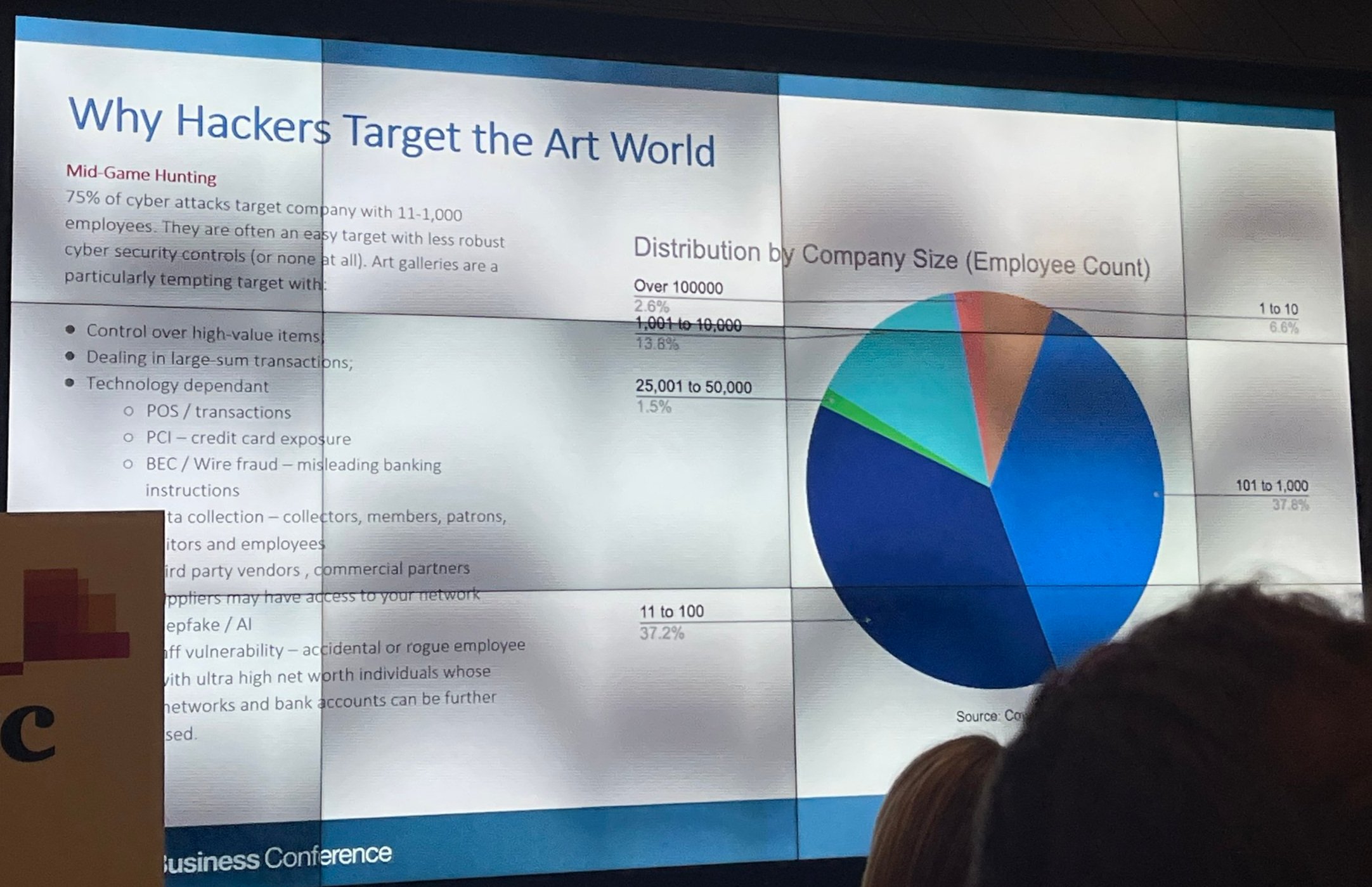Lastly, the biggest reason that sea freight will most likely not have a major impact on emissions in our sector is due to the lack of any real incentives besides “doing the right thing”. It costs about the same. It takes longer. It places more of a burden on staff. Why do it unless you have no other choice? One must have a true incentive, usually financial, to make a big impact.
The "Art" in "Artificial Intelligence"
My interest, naturally, lies in the dataset used to curate the show. In other words, the algorithm bloodhounds the internet for traces of digitized collection information from cataloged objects relevant to the prompt entered into ChatGPT. In other words, the catalog information of the collection available online. In other words, the work of registrars and collections managers.
The Art Business Conference, New York 2023
Climate Climate Control
In other words, take the principle responsibility of reducing collection emissions off the already threatened collection itself. Do not add more risk by extending travel times by sea or compromising the quality of packing for the sake of less substantial greenhouse gas reductions. We need to track and hunt the biggest game: emissions from our buildings in the form of electricity used to climatize spaces powered by non-renewable energy sources.
Bear Your Teeth
A little over a week ago, I attended a prescient event in New York hosted by the Responsible Art Market Initiative which presented panels on two of the major topics of our time: NFTs and Sustainability in the stark white, overhung walls of the below ground Phillips auction house building on Park Avenue.
Museums are Neutral [Ground]
As the International Council of Museums (ICOM) says (and I paraphrase), the attacks on art and cultural heritage in the name of climate activism show the immense value of these objects to the world. The attacks finally attracted the attention of the public outside of the cultural heritage community. How many of you heard of #JustStopOil before these attacks?







![Museums are Neutral [Ground]](https://images.squarespace-cdn.com/content/v1/5b818890297114b18b5c6121/2a374805-2924-47dc-a1df-495dfb36944c/IMAGE_JustStopOil_NationalGallery6_14102022-1230x923.png)
